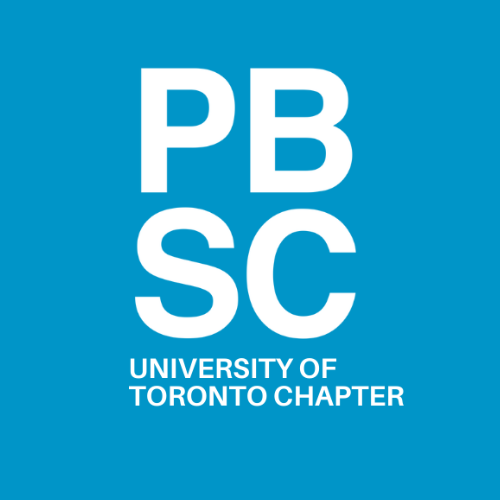Community Partners

Each year, PBSC partners with and helps build the capacity of nearly 400 organizations. Our student volunteers provide approximately 120,000 hours of free legal support annually.
Through our program, PBSC law student volunteers are matched with community organizations. Under the supervision of lawyers, students provide free legal support to communities and people facing barriers to access to justice. PBSC volunteers have a genuine passion for public interest work and a commitment to assisting our community partners.
If your community organization would benefit from the services of a PBSC law student volunteer, do not hesitate to contact us.
How does PBSC design impactful projects?
PBSC uses a proven model for developing impactful projects that leverage PBSC's organizational strengths and students' passion and energy. Our projects are all legal in nature (not administrative) and must be clear and specific, with concrete and pre-defined deliverables. PBSC projects aim to support our communities as they access and engage with legal systems. Our projects include public legal education, legal research and writing, and supporting people with one-time or discrete legal issues (such as a name change application or drafting a will).
What can a PBSC student do for my organization?
PBSC deliverables vary depending on the needs of your organization and/or the project with which you require assistance. Our students can:
• research and proactively monitor pending legislation, legal issues or current policy questions;
• write for media such as newsletters or blogs;
• provide legal information in an accessible format for the general public, i.e. through legal education materials (e.g., FAQs, info sheets, etc.), workshops, and seminars;
• support the clients of partner organizations by collecting clients' personal information and the facts of their case, helping clients complete court forms or other documents, and providing clients with legal information; and
• under close lawyer supervision, and in very limited circumstances, represent clients before tribunals and courts.
As law students, PBSC volunteers cannot provide legal advice or representation (except for the exception mentioned in the final bullet point above). Students cannot answer questions that relate to clients' own situations. Similarly, students cannot review, update or draft policy manuals and/or by-laws for not-for-profit corporations and charities.
PBSC volunteers are also rarely in a position to deliver legal information or draft plain language resources in languages other than French or English. If your project may require students to speak additional languages, this may be specified in the planning phase of the project.
How many hours can a volunteer PBSC student work?
What are my responsibilities as a PBSC partner organization?
During the summer, new partner organizations work together with PBSC to develop and plan the project(s) for the upcoming year. Returning partner organizations are invited to share feedback and discuss any changes they wish to make to their project(s).
Organizations are asked to identify an Organization Contact Person who will be responsible for introducing students to the organization, checking on progress, and alerting PBSC to any issues that may arise. The Organization Contact Person will also attend our monitoring calls (a brief check-in in November and March) and evaluate PBSC at the end of the year. This information is critical, since it helps us continually improve our program and ensure that our partners are satisfied with all placements.
All projects must also be overseen by a qualified Lawyer Supervisor, who provides feedback to students and reviews their work. PBSC can help find qualified lawyer supervisors for organizations who do not have a lawyer working with them.
Does my volunteer need to work onsite? What if we don't have space for them?
What can I expect from PBSC itself?
Once your project has been approved, we commit to providing you with (a) qualified law student(s) who will volunteer to provide legal services for approximately 3-5 hours per week. If you do not have lawyers on staff, we will help you find a qualified lawyer supervisor to supervise your student’s work. Lastly, we monitor all of our students closely and will address any problems or concerns that may arise in a timely manner.
Can I request a student with a particular skill-set (e.g. language requirement, course prerequisite, etc.)?
Yes. You may inform our Program Coordinators that you would like a student with a particular academic or professional background, or who speaks certain languages, and we will do our best to accommodate your request. You may also indicate whether your project is open to first-year students, upper-year students, or both. Additionally, you may request students from the same identity background as the clients you serve (e.g., a women’s shelter may request only female-identified students).
We will make every effort to meet all requests, but cannot guarantee it. Please be sure to let us know whether these requests are merely preferences (i.e. you would be willing to proceed with a different student who does not possess the requested characteristics) or strict requirements (i.e. the project will not be able to run).
Can I choose my student?
If you have any concerns, please contact the Program Coordinators. We would be happy to discuss what characteristics you seek in a strong candidate to ensure that you receive a student who is compatible with your organizational needs.
Does working with PBSC cost anything?
How do I develop a project?
You may also wish to look at the following downloadable documents which are used to create a PBSC project. Please note that these documents are only a reference; when you contact us, we will provide you with the most updated version.
1. Reference Guide for Partner Organizations. Outlines the roles and responsibilities of PBSC, our students, and your organization.
2. Project Description Form. Outlines the structure of a project.
3. Organization Agreement Form. Outlines the commitments made by our partner organizations.
4. Lawyer Supervision Agreement Form. Outlines the commitments made by our lawyer supervisors.
